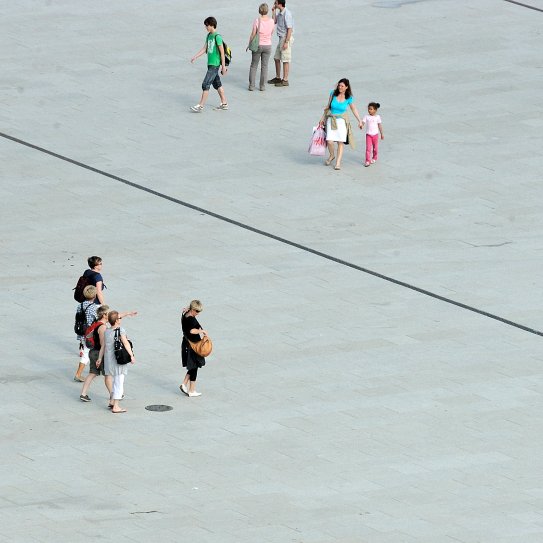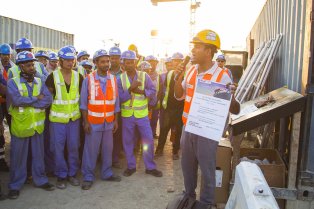Socio-economic footprint
As a major actor in the development of cities and regions, VINCI recognises the need to measure its socio-economic impacts. This socio-economic footprint enables the Group to identify and measure the economic flows of all its business lines in terms of purchases, wages and taxes and have a boarder view of its activities within a geographical area, and quantify the wealth produced and distributed by the Group across territories.

How is VINCI contributing to the French territories?
VINCI’s contribution to the regions is measured through three main indicators: spendings (mainly purchases) by the Group with its suppliers, wages paid and taxes.
These flows have an impact on the economy and it is possible to model the economic spin-offs, sector by sector, territory by territory, using the tool developed by UTOPIES.
This shows that VINCI’s socio-economic weight is not limited to « direct » impacts, and that each job and each purchase linked to the activity generates, in turn, additional jobs and purchases, as if by successive waves.
462,000
jobs supported in France by VINCI (i.e. 1.6% of national jobs)
€35.7bn
of contribution to GDP (i.e. 1.5% of national GDP)
18.5
jobs supported for €1M spent by VINCI (purchases, wages, taxes)
€4bn
of taxes paid within French territory (taxes, social costs and notary fees)
96%
of purchases from French suppliers
48%
of purchases made from VSES/SMES
A broader social responsibility
VINCI is committed to improve social cohesion within the regions. This contribution is illustrated by our commitment to inclusion and diversity through a number of measures that promote gender equality, employment of young people and, more broadly, of anyone at risk of exclusion, partnerships with the social solidarity economy and civic engagement.
2,944
people supported towards long-term employment by VINCI insertion emploi (VIE)
10,000
young people supported in 2024 through the Give Me Five programme
+8,000
young people hosted on work-study contracts in the Group in 2024
€47m
of purchases made with social and solidarity economy players


